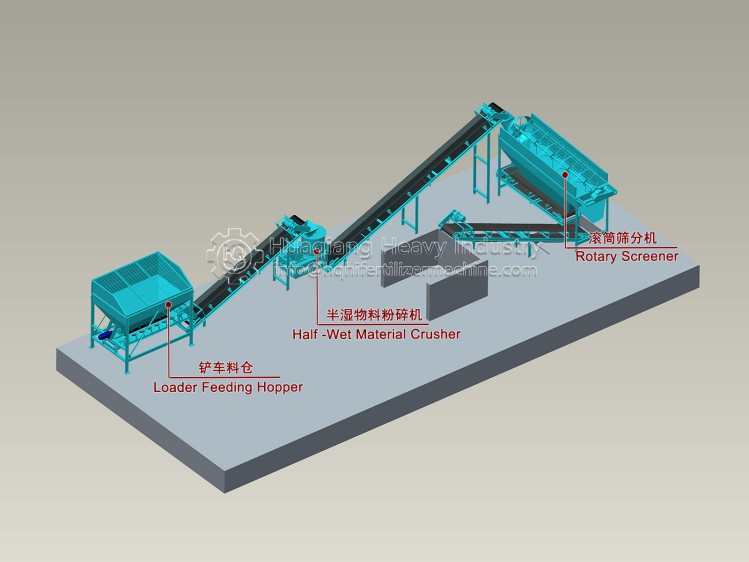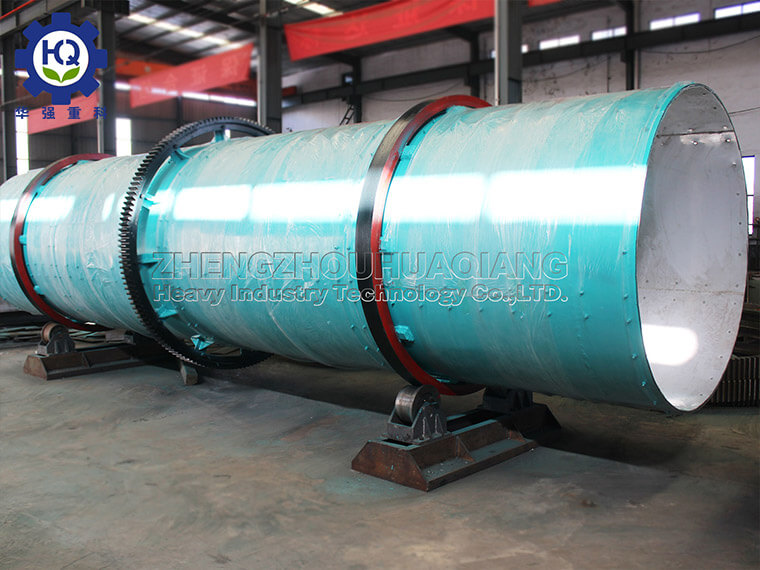Process flow and equipment characteristics of BB fertilizer production line
The BB fertilizer (Bulk Blended Fertilizer) production line is an efficient and flexible fertilizer production method that mixes multiple base fertilizers in specific proportions to meet the nutritional needs of different crops and soils. The process flow of BB fertilizer production line mainly includes raw material processing, metering, mixing, packaging and other links. The following provides a detailed explanation of each link and its equipment characteristics:
1. Raw material processing
Raw material processing includes storage, crushing, and transportation of raw materials. Raw materials such as urea, diammonium phosphate, potassium sulfate, etc. are usually stored in silos, crushed by crushers to a suitable particle size for mixing, and then sent to the metering system by conveying equipment such as screw conveyors and bucket elevators.
Equipment features:
Storage bin: designed with moisture-proof and insect proof functions to ensure the quality of raw materials.
Crusher: Efficient crushing, reducing the impact of uneven particle size of raw materials on the mixing effect.
Conveyor equipment: Automated control to reduce material loss and labor costs.
2. Measurement
The metering process is the core of the BB fertilizer production line, ensuring that various raw materials are added to the mixer in precise proportions. Electronic scales are usually used for measurement, and precise proportioning is achieved through automatic adjustment by the control system.
Equipment features:
Electronic scale: High precision, capable of quickly and accurately measuring different types of raw materials.
Control system: With a high degree of automation, it can adjust the raw material ratio in real time to ensure product quality.
3. Mixing
A mixer is a device that thoroughly and uniformly mixes the measured raw materials. Common examples include a double shaft blade mixer, a disc mixer, etc.
Equipment features:
Mixing efficiency: It can quickly and evenly mix various raw materials to ensure the uniform distribution of fertilizer components.
Cleaning and maintenance: Designed with an easy to clean structure to reduce residue and facilitate rapid conversion and production of fertilizers with different formulas.
Durability: Made of wear-resistant materials to extend the service life of the equipment.
4. Packaging
The packaging process includes automatic weighing, filling, sealing, and labeling. Usually completed using an automatic packaging machine.
Equipment features:
Automation: Automated weighing and filling, improving production efficiency and reducing manual operations.
Flexibility: Able to adapt to different packaging bag sizes and weights, meeting diverse needs.
Accuracy: Ensure the weight of each package of fertilizer is accurate and meets quality control standards.
5. Product quality control
In the BB fertilizer production line, there are usually quality control points, such as online testing equipment, used to detect key indicators such as fertilizer composition and moisture, to ensure that the product meets standards.
Equipment features:
Online detection: Real time monitoring of product quality to improve product consistency.
Feedback control: capable of automatically adjusting production parameters based on test results to ensure stable product quality.
summary
The process flow and equipment characteristics of the BB fertilizer production line reflect its high efficiency, precision, and flexibility. It can quickly adjust the formula according to market demand and produce customized fertilizers that meet the needs of different crops and soils. The application of automated and intelligent equipment has improved production efficiency, reduced production costs, and ensured the quality and stability of fertilizers.
.jpg)
.jpg)

.jpg)
.jpg)

.jpg)
